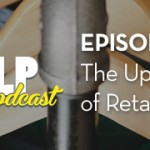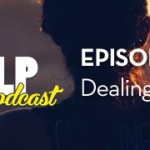What to do when you’ve been betrayed
The concepts of betrayal come from the idea of trust, which we have spoken about before. Trust is, at least for me, a concept that cannot be maintained. Trusting people shackles them to a set of behaviours and the assumption that they will never change and be forever constant in what we want them to be, this is seldom possible. People change, develop and grow with time and are never the same from one day to the next. The people that we trust the most, and therefore assume that they will not let us down are family and friends.
If you have been following our work at Live In the Present you will understand our emphasis on the need for forgiveness to minimise the negative effects of when trust breaks and people let us down. Though, for many, it can be hard to let go of negative attachments especially when the person has been close or is family.
“It is easier to forgive an enemy than to forgive a friend”
(William Blake)
Betrayal is loss of trust with knobs on. Betrayal seems one whole size bigger than trust, in that, the word betrayal suggest, to me, that someone has deliberately gone out of their way to do something to me that is injurious to either me or my reputation.
Betrayal can be totally destructive and is something that we might expect from our enemies but not from our family or friends. When the betrayer is close to us the effect is all the much greater. Many people that I work with, often when going through a relationship break up, would say that the only true betrayal is from someone that has been loved, cherished, respected and trusted.
“The saddest thing about betrayal is that it never comes from your enemies”
(daily quote)
Betrayal, in the sense of being let down, or letting down, comes in a few varieties. (thefreedictionary.com)
1. Treason is to aid an enemy of one’s nation, friend, family, company and so on or to be a traitor or to betray one’s country. In many countries treason remains a capital offence. The phrase “My enemies enemy is my friend” suggests to me that treason is in the eye of the beholder in the same way that “one persons terrorist is another persons freedom fighter”. It depends which side you are on as to whether you feel that the person is either a traitor or a hero.
2. The role of the spy is always that of betrayal, depending on which side you are on they will be hero or foe. The spies role is in discovering or handing over information or, to expose, a nation, company, or a friend, treacherously to an enemy. This sounds very grand and a bit 007, but treachery can be equally true of the gossip network in any group. Back biting and “stabbing people in the back” can be found in many social settings and are often the negative reactions of opposing group as ‘us’ and ‘them’. Do you belong or don’t you? Are you in or out? Once social groupings are established “Those who are not for us are against us”. Gossip often includes sharing secrets and confidences behind someone’s back which is often seen as betrayal and treachery.
3. To have an affair, or to engage in other infidelities, is to break a promise that has been agreed between us. It is to be disloyal to the trust that has been placed in us by our partner. Those relationships that are “solemnised” in Church or Registry Office are recorded contracts accompanied by verbal declarations and promises of intent. To break the terms of such contracts is a legal matter, marriage is, after all, a legal business, but the betrayal that is so painful is emotional and may never be resolved. Perhaps our partner strays or leaves us for another unintentionally, it just happened like in the song “Twenty Four Hours from Tulsa”. Deliberate seduction is a different matter.
4. To seduce someone and then forsake them is more common than we think. Seduction is not just a sexual event. It is what happens to us when we visit the car showroom and walk out with the car that we never intended to buy. The sales person made us feel, if only for a while, that we were so important and had the knack of making us feel so good that we fell in the heat of the moment and was consumed by their passion. Of course once we re-enter the showroom and they have had their wicked way with us and have nothing more to gain, we are treated completely differently we have ceased to be their love object we have been rejected in their betrayal.
5. The “let down” is when someone has disappointed our expectations. Perhaps they promised us that they would do something for us, complete a task, look after us in some way and then we find that they have not done it. What they said, what they promised was all hot air and, worst of all we discover that they never intended to do it in the first place. Just like the perfect conman they looked us in the eye and with total narcissism they lied and we believed them. Where I came from this was described as “being taken up the cleaners”.
I could go on and on but I think you get the point. For me betrayal is distrust with intent. The person meant it to happen it was a deliberate act that was designed for either their gain or our loss. Betrayal is the ultimate act of hurt and hatred, (is “hurtred” a word? If not it should be).
Anyway, if you go back to step one in the Live In the Present book it begins with forgiveness. The only way out of hate and hurt and the after effects of betrayal is forgiveness. It is then that you can let it go.
Take care and be happy
Sean x




Trackbacks & Pingbacks
[…] Here’s a link to this week’s blog post by Sean […]
Leave a Reply
Want to join the discussion?Feel free to contribute!